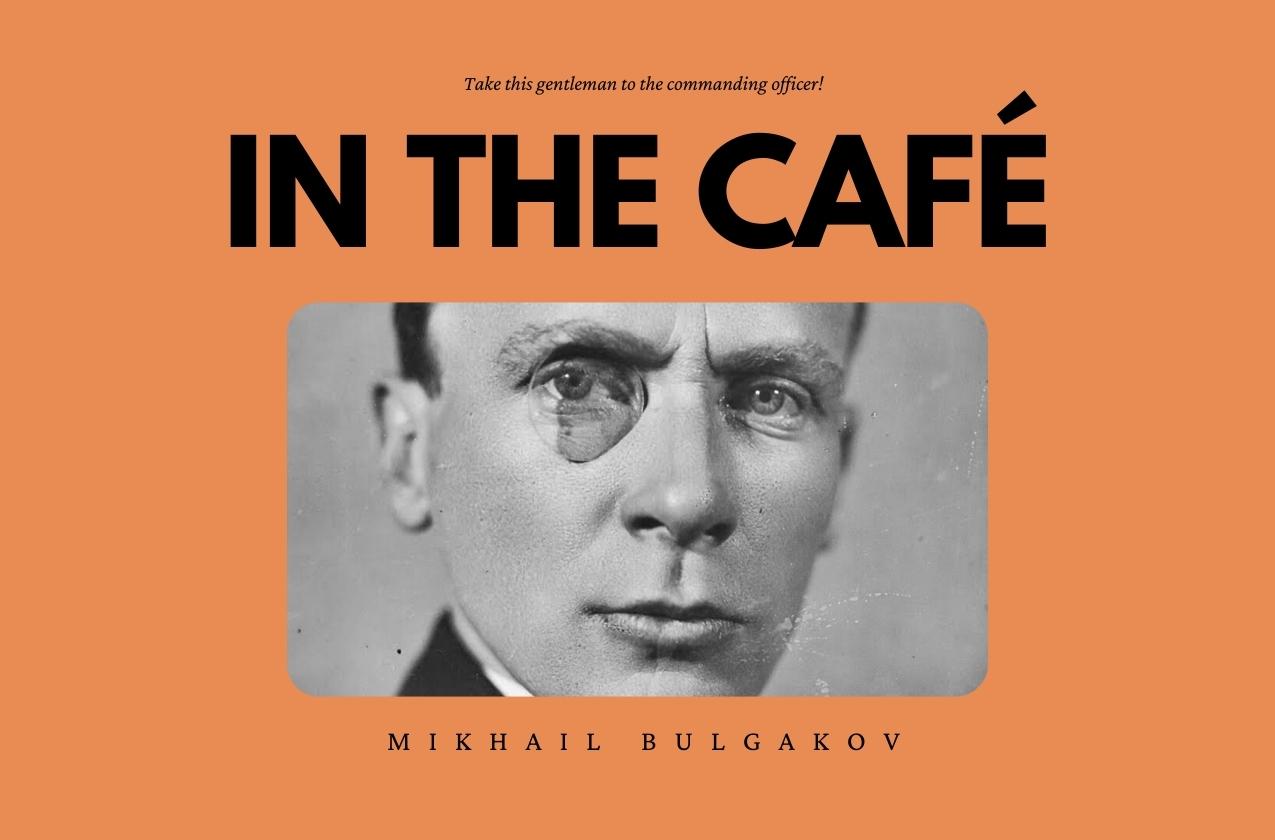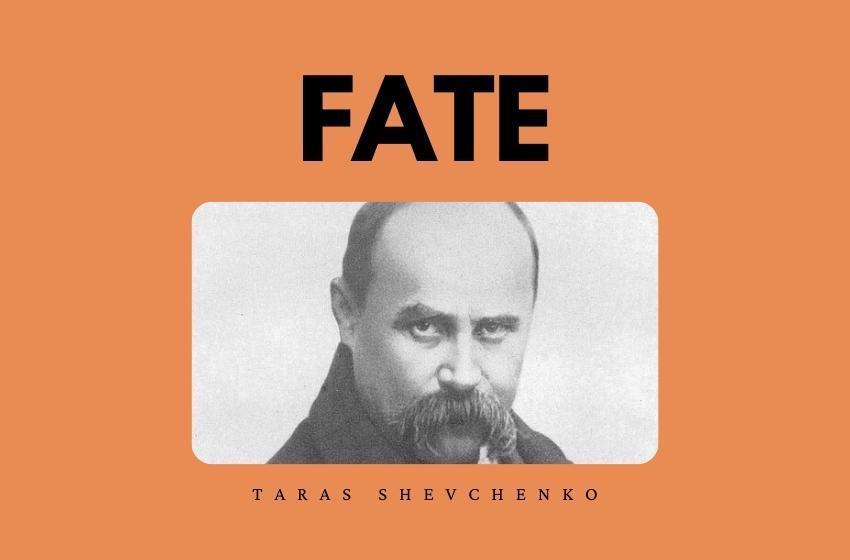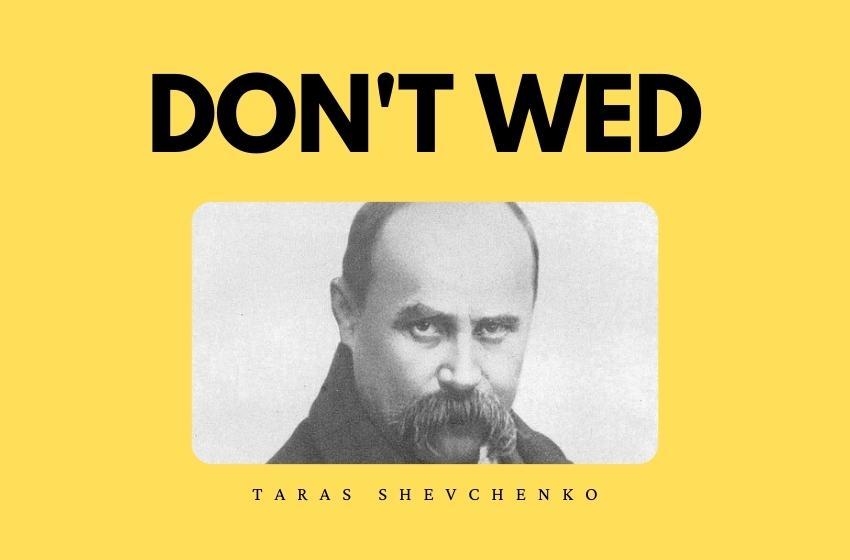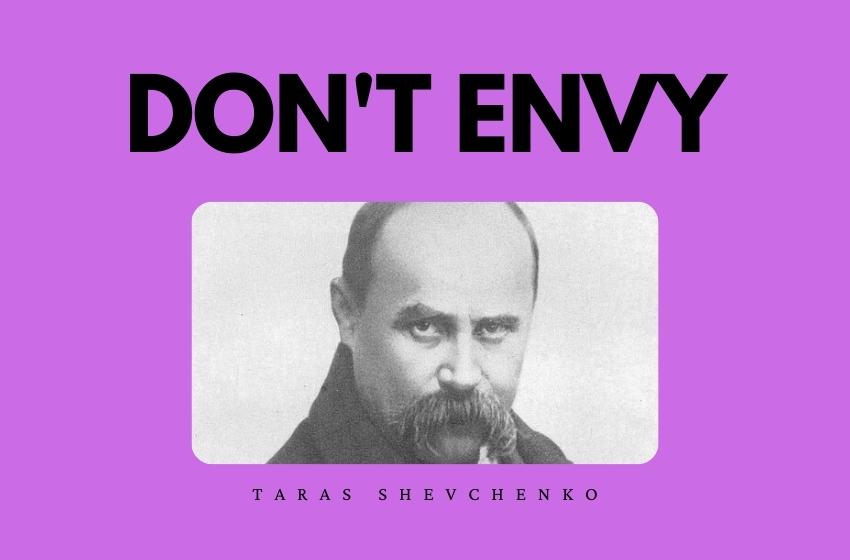In August 1928, Mikhail Bulgakov arrived in Odessa and read "On The Run" to the Presidium of the Artistic Council of the Russian Drama. It was decided to include the play in the repertoire, but later it was banned as containing an apology for the 'white' movement. The writer stopped at the Imperial Hotel, which was later named Spartak. Now it has been demolished.
A Ñafé in a city far from the front. A filthy floor. Fog from tobacco smoke. Sticky, dirty little tables. Several soldiers, several ladies, and a lot of civilians. On the stage a piano, cello, and violin play a rollicking tune. I make my way among the little tables and take a seat. A young lady in a little white apron comes up to my table and looks at my questioningly.
“Would you be so kind as to get me a cup of tea and two pastries?â€
The young lady disappears, then returns looking like she was doing me a favor and puts a cup full of yellow liquid and a plate with dry pastries in front of me. I look at the cup. The liquid has an appearance that vaguely resembles tea. Yellow, cloudy. I try it with a spoon. It is warmish, a little sweet, a little disgusting. I light up a cigarette and have a look at the crowd. At the neighboring table a group sits down noisily: two civilian gentlemen and a lady. The lady is well-dressed, she rustles her silk. The civilians make the nicest of impressions: tall, ruddy, well-fed. At the peak of draft age. Dressed charmingly. On the little table in front of them appears a plate with pastries, then three cups of “Warsaw†coffee. They start up a conversation. The words of the civilian in patent leather dress shoes, the one sitting closest to me, make their way through the air in snippets. An apprehensive voice. Audibly:
“Rostov... you can imagine for yourself... Germans... Chinese... panic... they have helmets on... one hundred thousand cavalry...â€
And again:
“Rostov... panic... Rostov... cavalry...â€
“That is terrible,†languorously says the lady.
But it is obvious that neither the one hundred thousand cavalrymen nor the helmets bother her very much. Rustling in her silk, she smokes a cigarette and looks about the café with sparkling eyes. And the patent leather dress shoes continue to whisper. My imagination begins to play.
What would happen if, by a sudden miracle, like in a magic tale, I instantly gained power over all of these civilian gentlemen? Good God, it would be wonderful! Right here in this café, I would get up, go over to the gentleman in his patent leather dress shoes, and say:
“Come with me!â€
“Where to?†the flabbergasted gentleman would ask.
“I heard how you were worried about Rostov; I heard how you are worried about the advance of the Bolsheviks.â€
“That does you credit.â€
“Come with me, I will give you the opportunity to sign up in a unit right away. They will give you a rifle that very moment and a full-ride opportunity to go to the front at state expense, where you will be able to take part in driving back those much hated Bolsheviks."
I can imagine what would happen with this gentleman in the patent leather dress shoes after hearing that. In one moment he would lose his amazing ruddy complexion, and a piece of pastry would get stuck in his throat. Beginning to regain his feet, he would start to mumble. From this disconnected, but passionate babble it would first and foremost become clear that external appearances can be misleading. As it turns out, this blossoming, ruddy person is ill... Unable to get better, unresponsive to medical treatment, hopelessly, shatteringly ill! He has a cardiac malformation, a hernia, and the very worst sort of neurasthenia. Only by a miracle can one explain the present situation, that he is sitting in a café swallowing pastries instead of laying in a cemetery not eating, but being eaten by worms. And what is more, he has the written testimony of a doctor!
“That’s okay,†I would say, sighing, “I myself have the written testimony of a doctor, and not just one, but three entire testimonies. And none-the-less, as you see, I am forced to wear an English overcoat (which, I might add, simply does not warm a thing) and every minute I must be prepared to turn up in a transport car, or in some other sort of unexpected situation of the military sort. Spit on these doctors’ testimonies! There is no time for them! You yourself just a moment ago were describing the dire situation...â€
Here the gentleman would heatedly start babbling on, trying to prove that he is already registered and works for the defense efforts at various places.
“Is it really worth discussing registration,†I would answer, “since it is hard to get, but getting released from it and winding up at the front takes all of one minute!â€
“As concerns working for the defense, you have been, how should I put it..., led astray! According to all external signs, according to your every behavior it is obvious that you are working for nothing more than the padding of your own pockets with tsarist and Don currency. That’s one thing, and another thing is that you are working for the destruction of the home front, gadding about cafés and cinemas and spreading your stories of confusion and fear, by which you are infecting all those around you. You yourself must agree that nothing but filth can come of such work for the defense!â€
“No! You, unconditionally, are of no use for that job. And the only thing that remains for you to do is to head for the front!â€
Here the gentleman would start grasping at straws and would announce that he belongs in a category excepted from service (the only son of a dead mother, or something like that), and finally, that he doesn’t even know how to hold a rifle.
“For God’s sake,†I would say, “don’t tell me about any exceptions. I’m telling you, there is no time for them now!â€
“As far as rifles are concerned, that’s just nonsense! I assure you that there is nothing easier in this world than to learn to shoot a rifle. I’m telling you that based on my own experience. And concerning military service, what can you do? I wasn’t serving either, but now I am having to... I assure you, that war, with its accompanying worries and trials, did not attract me in the least.â€
“But what can you do! I’m not very well myself, but I’m having to get used to it!â€
“I no less than you, and perhaps even more than you, love the quiet, peaceful life, cinematography, soft couches, and “Warsaw†coffee!â€
“But, alas, I can enjoy none of these things to my heart’s content!â€
“Neither you nor I have any option left except to take part in some way or another in the war, otherwise the red storm cloud will sweep down upon us, and you yourselves understand what will happen then...â€
That’s how I would speak, but, alas, I would not convince the gentleman in the patent leather dress shoes. He would start to mutter or finally would understand that he doesn’t want, can not, does not desire to go fight...
“Well then, you can’t help it,†sighing, I would say, “if I can’t convince you, you’ll just have to submit to the circumstances!â€
And, turning to the efficient executors of my orders that surround me ( in my dream I, of course, also imagined them as an obligatory element), I would say, pointing at the completely deflated gentleman:
“Take this gentleman to the commanding officer!â€
Having dispatched the gentleman in the patent leather dress shoes, I would turn to the next one... But, ah, as it would turn out, I had gotten so carried away with the conversation that the sensitive civilians, having heard only the beginning of it, noiselessly, one after the other, left the café. Decidedly all of them, to the very last one!
.............................................................
After the intermission the trio on the stage began playing “Tango.†I came out of my reverie. The fantasy was over. The door to the café banged and banged. The crowd expanded. The gentleman in the patent leather dress shoes knocked with his spoon and demanded some more pastries... I paid twenty seven rubles and, making my way among the occupied little tables, went outside.
The Caucasian Newspaper, January 5/18, 1920
Translated into English by Sidney Eric Dement of the Binghamton University, New York, USA.





















